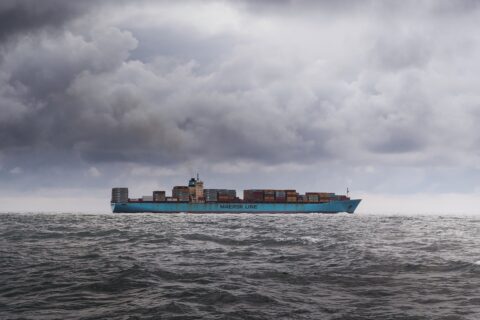There is absolutely no introduction required to the deadly, seriously damaging novel Coronavirus, officially named COVID-19 by WHO. The whole world is talking about it helplessly, desperately longing for the cure or vaccination – after all, how long can you fight without having the ammo for it. The impact of Coronavirus is huge – it’s not only a few people or local businesses, but the entire world and several major industries; and freight forwarding industry is no different! The
With China, the major trade powerhouse of the world, suffering a breakdown, all the major aspects of global trade have been affected. China plays a vital role in international trade and caters to all types of small, medium and large businesses across the globe; from sourcing products, assembling them, manufacturing them to distributing them, thus hugely impacting the international supply chain, which in turn has a domino effect on the freight forwarding industry.
What is the Impact of Coronavirus Impact on Freight Forwarding?
Freight forwarding has seen severe disruption in the operations, especially in ocean and air freight, here are some of the key highlights from the logistics and freight forwarding industry –
- China houses 7 of the world’s top 10 container ports, Conronavirus has led to major slowdown in the port activity, resulting in millions of losses every day. The ports in China have been shut since mid-January and will now be slowly resuming activity by end of February.
- Shipping companies have reduced the number of
vessels entering and leaving the China waters, due to the fear of Coronavirus
penetrating their country – thus impacting the sea freight.
- Companies are looking for alternate routes to
direct their shipments to other ports, leading to additional logistics time,
resources and cost. Many companies are already experiencing a wide backlog of
stocks, that would result in loss of revenue for them
- Shipping vessels from China are being
quarantined (held) in the water, till it is declared the than no-one on the
ship is detected with the virus-like symptoms; as this could result the virus
entering the destination country. Many shipping vessels are stuck in the
waters, not able to dock on the ports, further delaying the delivery, and
orders of the next shipment
- The reefer containers (refrigerated containers) carrying perishable goods will be posed with enormous losses, as these perishable goods have a shelf life. However, strong the container might be, it cannot be maintained and monitored for the required temperature for very long periods unless plugged in. Port shutdown in China has led to massive congestion the port, leading to the shortage of power plug resources for all the reefer resources. Several shipping lines are advising customers to divert the shipment through other less congested ports in China or take the goods back, which again comes with an additional cost.
- Inbound and outbound flight operations from China have drastically reduced, which has led a slowdown in the international courier and air freight operations. Many international air carriers are denying delivery or transit of couriers and shipments through various Asian countries
- Cross border freight transport has come to a halt and is experiencing severe delays. Local transportation is still experiencing shutdown due to the shortage of manpower
The entire world has taken a hit from the deadly novel Coronavirus (COVID-19), in terms of operations, resources and most importantly cost – the virus has brought major slowdown in the international trade, supply chain and freight forwarding across the world.
Reviving from the Impact of Coronavirus on Freight Forwarding
China is slowly resuming its manufacturing and production, and even the freight forwarding operations including sea freight, air freight and road freight are resuming to some extent. However, it will take a few more weeks till it gets back to normal. With shortage of manpower, risk of the virus, the movements will remain to be slow. Given the inability to meet the increased demand across the world, companies should expect a rise in cost of freight forwarding and logistics in and out of China.
To conclude, Conronavirus (COVID-19) has caused major disruption and will also result in major losses across industries. However, it is only a matter of time when the situation gets better and operations resume their normal course. ProConnect Integrated Logistics is working closely with its network and agents to ensure smooth freight forwarding operations to it’s customers.





 APP DOWNLOAD
APP DOWNLOAD
Great content! Super high-quality! Keep it up! 🙂
great